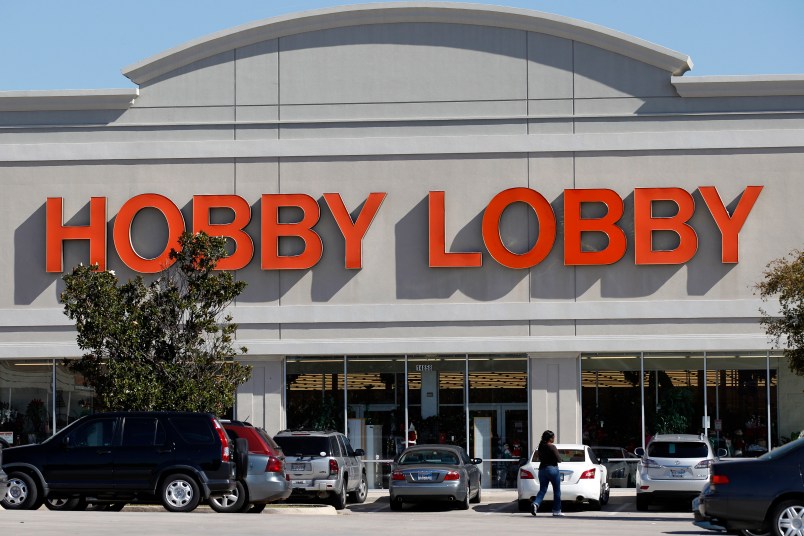A sharply divided Supreme Court on Monday ruled that “closely held” for-profit corporations cannot be forced to abide by Obamacare’s mandate to cover contraception for female employees in their insurance plans at no extra cost.
The decision is a major victory for Hobby Lobby and Conestoga Wood, two businesses with Christian owners which sued for relief from having to cover emergency contraceptives like Ella and Plan B due to their religious beliefs. The ruling is narrower than it could have been: publicly held businesses may not be allowed to opt out of the mandate. (Religious nonprofits were given an accommodation; houses of worship are exempt.)
The vote was 5 to 4. The Republican-appointed justices sided with Hobby Lobby while the Democratic-appointed justices sided with the Obama administration.
“Although [the Department of Health and Human Services] has made this system available to religious nonprofits that have made religious objections to the contraceptive mandate, HHS has provided no reason why the same system cannot be made available when the owners of for-profit corporations have similar religious objections,” Justice Samuel Alito wrote for the Court. “We therefore conclude that this system constitutes an alternative that achieves all of the Government’s aims while providing greater respect for religious liberty.”
At issue was whether the contraception mandate passed the strict scrutiny standards imposed by the 1993 Religious Freedom Restoration Act, or RFRA, which said laws that substantially burden a person’s exercise of religion must be justified by a compelling governmental interest and be narrowly tailored to meet that interest.
“RFRA’s text shows that Congress designed the statute to provide very broad protection for religious liberty and did not intend to put merchants to such a choice,” Alito wrote. He concluded: “The contraceptive mandate, as applied to closely held corporations, violates RFRA.”
Justice Ruth Bader Ginsburg led the dissent on behalf of the liberal-leaning justices, chiding the majority’s ruling as “a decision of startling breadth.” She said the Court has allowed commercial enterprises to “opt out of any law (saving only tax laws) they judge incompatible with their sincerely held religious beliefs.”
Kaiser Family Foundation provided a diagram detailing the core legal question.

The Supreme Court’s ruling has no impact on the core components of the Affordable Care Act, such as the individual mandate to buy insurance, most of which were upheld in 2012.
This article has been updated. The ruling is available below.







Horrible ruling. Carves out an exception just for birth control, but makes clear that it doesn’t apply to other religious beliefs, such as blood products, vaccinations or non divine healthcare. This is as badly crafted as I’ve seen in a long, long time. This is another punch the hippies case. The majority started with a decision and then made up reasons to have it. Just horrible.
Net up , can a company deposit you paycheck at the company store and require you to spend your money there .
I have no confidence in any of the five conservative supreme court jurists – period, exclamation point. They are dead to me.
This ruling is based on the 5 conservative justices’ personal prejudices—not on the Constitution or US statutory law.
And the TGOP continues its “outreach to women”. I hope “moderate” as well as progressive candidates run hard on this. Also think it just made a Hillary victory in '16 that much more likely; e.g., “do you want a Supreme Court appointed by Scott Walker making decisions about women’s bodies???”